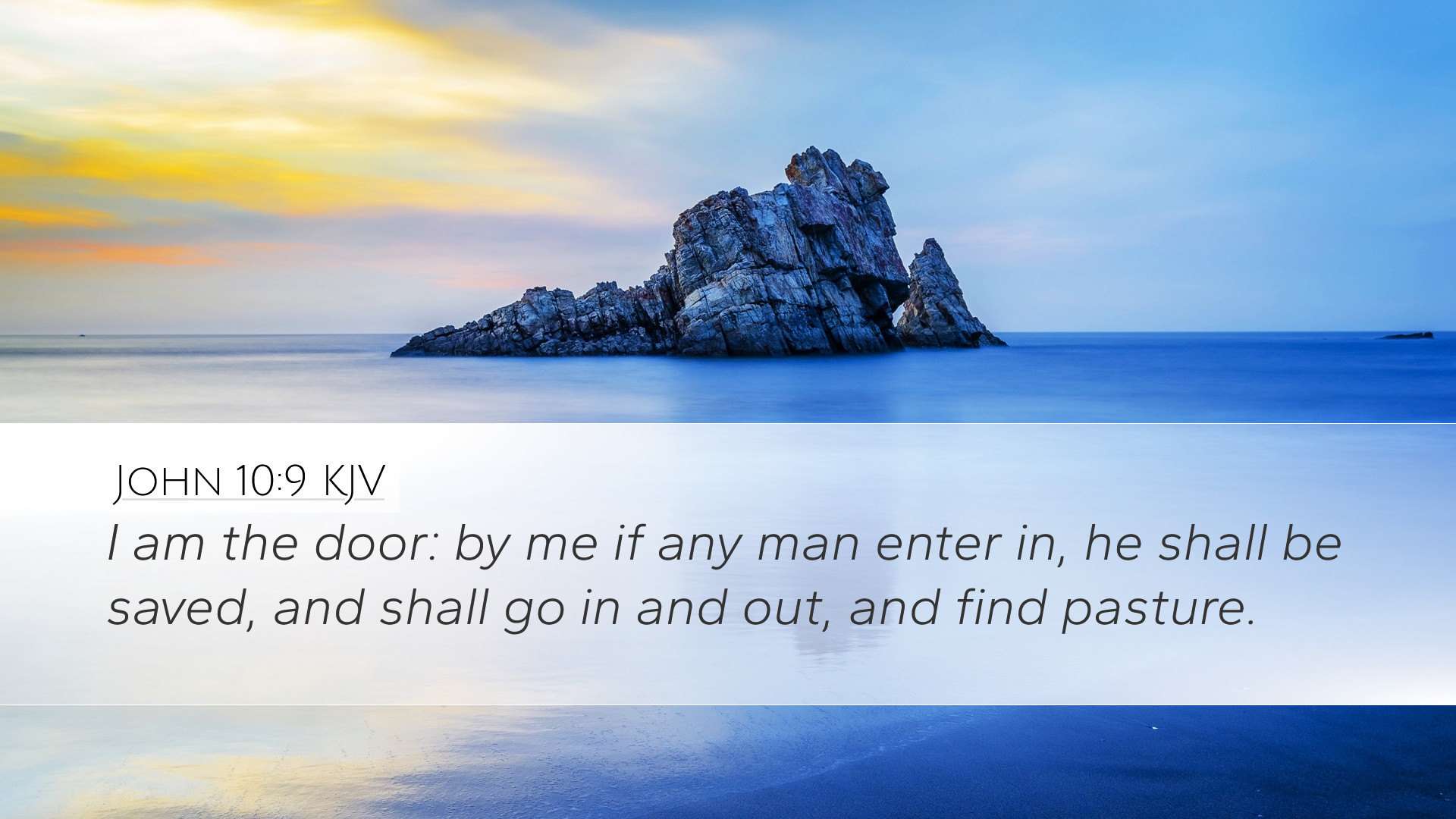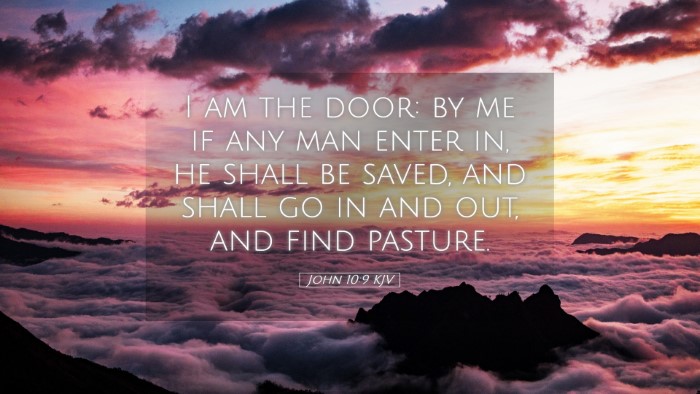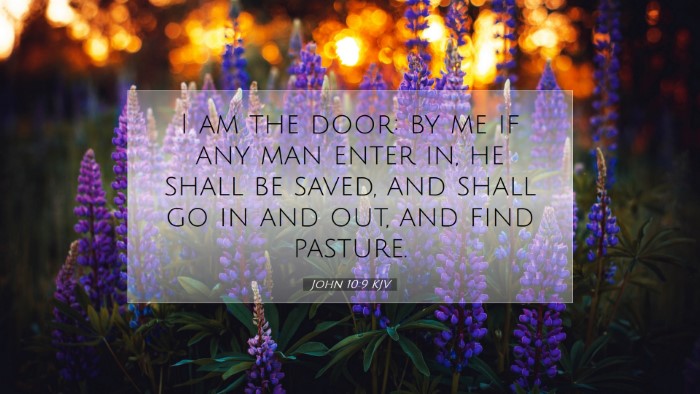Commentary on John 10:9
Verse: “I am the door; if anyone enters by Me, he will be saved, and will go in and out and find pasture.” (John 10:9, NKJV)
Introduction
This profound declaration by Jesus, where He identifies Himself as the “door,” is rich in theological significance and pastoral application. The metaphor of the door encapsulates various aspects of salvation, security, and sustenance that are vital for believers. It is crucial to examine this verse in the light of biblical theology and its implications for the Christian life.
Theological Insights
The declaration “I am the door” provides us with significant truths about Jesus’ role in salvation:
- The Exclusivity of Christ: According to Albert Barnes, Jesus stresses that He is the sole entrance into salvation. In a pluralistic world, this statement remains countercultural yet profoundly true. He states, “There is no other pathway to God except through me.”
- Security: Matthew Henry emphasizes that entering through Christ ensures safety. As a shepherd protects his sheep, Jesus protects His followers from spiritual dangers.
- Access: Adam Clarke notes that the door signifies access to a new way of living and relationship with God. The believer is invited into a communal life within the fold of God’s grace.
Salvation and Assurance
Jesus asserts that by entering through Him, one “will be saved.” This affirmation carries significant weight in the theological discourse on salvation:
- Assurance of Salvation: Barnes reminds us that this passage offers believers assurance. Their salvation is not based on their works but entirely on Christ's finished work.
- Past and Future Salvation: Henry describes salvation here as both a present experience and a future hope, indicating that believers currently experience salvation but look forward to its ultimate fulfillment.
- The Fullness of Life: Clarke elaborates that salvation is not merely a rescue from sin, but an invitation to experience the full life that Jesus promises. The phrase “find pasture” alludes to spiritual nourishment and sustenance.
The Implication of “Going In and Out”
The phrase “will go in and out and find pasture” is significant and deserves attention:
- Freedom in Christ: This imagery reflects the freedom and security of the believer. As Henry posits, “Going in and out” represents the daily life of believers who have access to God’s presence and grace.
- Spiritual Nourishment: Clarke states that the pasture represents spiritual sustenance. Believers are continually nurtured in Jesus, providing them with strength for their journey.
- Community and Activity: Barnes points out that this concept includes the idea of community life. Believers are both sanctified individually and brought into the communal life of the church.
Contrasting the Good Shepherd and Thieves
In understanding this verse, it is pertinent to consider the context of Jesus’ comments concerning false leaders and impostors:
- Identification of False Leaders: Jesus contrasts Himself with thieves who come to steal and destroy. Henry highlights the danger of being led astray by false teachings that promise what they cannot deliver.
- The Nature of True Leadership: Clarke emphasizes that true leaders point to Christ as the door rather than themselves. Hence, pastors and church leaders are called to reflect this model.
- Spiritual Discernment: Barnes encourages believers to develop discernment, recognizing the voice of Christ and avoiding those who do not speak truthfully about Him.
Practical Applications for Believers
Finally, understanding John 10:9 carries substantial implications for daily Christian life:
- Confidence in Christ: Believers should cultivate confidence that Jesus is indeed their door to salvation. This assurance impacts their witness and worship.
- Daily Dependence: As one enters through the door daily for sustenance, Christians are encouraged to seek spiritual nourishment through prayer, scripture, and community.
- Community Living: The teaching prompts believers to foster a sense of community, encouraging one another to stay true to Christ, the door that unites them.
Conclusion
In John 10:9, Jesus encapsulates a profound truth about identity, security, and relationship. By being the door, He calls all who wish to enter into a life that brings salvation, sustenance, and security. For pastors, students, theologians, and Bible scholars, this verse serves as a central point in understanding Christ's role and a reminder of the abundance available in Him.


